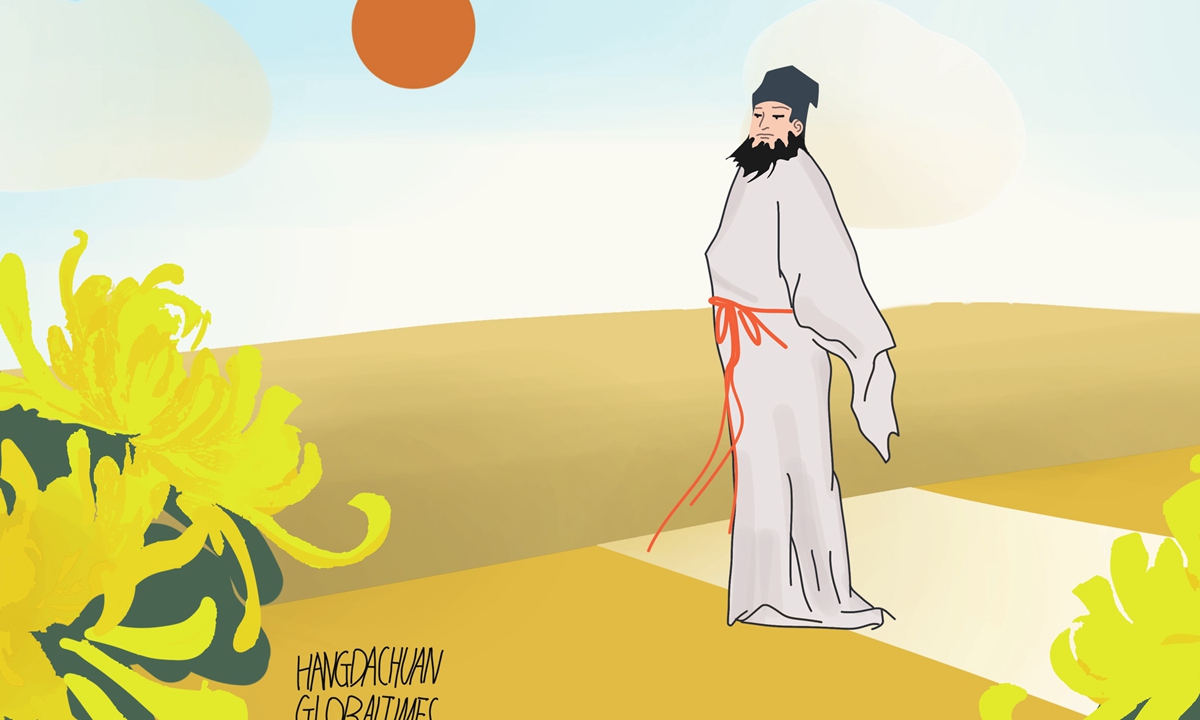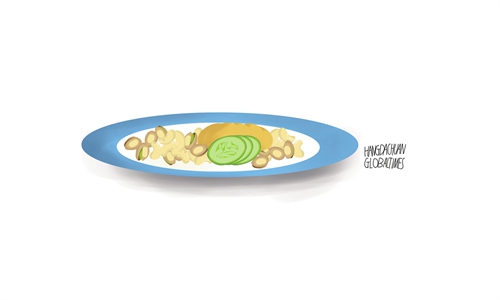ARTS / CULTURE & LEISURE
Learning Chinese
Chat attack
holding things to speak for will / 借物抒情 / (jièwù shūqínɡ)
A: I have heard that you really like literature. Have you heard of the literary expressive method that is called holding things to speak for will?
听说你很喜欢文学,你听说过借物抒情这种文学表达方法吗?
(tīnɡshuō nǐhěnxǐhuān wénxué, nǐ tīnɡshuōɡuò jièwù shūqínɡ zhèzhǒnɡ wénxué biǎodá fānɡfǎ ma?)
B: I'm not sure, can you explain it to me in simple terms?
我不太清楚,你能简单跟我解释下吗?
(wǒ bùtài qīnɡchǔ, nǐnénɡ jiǎndān ɡēnwǒ jiěshì xiàma?)
A: This method of expression is often seen in Chinese poetry. Poets often describe concrete objects or animals to represent their own feelings.
这种表达方式在中国诗歌中特别常见。诗人常用描绘某种具体事物或动物的方法来寄托自己的情感。
(zhèzhǒnɡ biǎodá fānɡshì zài zhōnɡɡuó shīɡē zhōnɡ tèbié chánɡjiàn.shīrén chánɡyònɡ miáohuì mǒuzhǒnɡ jùtǐ shìwù huò dònɡwù de fānɡfǎ lái jìtuō zìjǐde qínɡɡǎn.)
B: That sounds really interesting. Can you tell me some examples?
这听起来很有意思,你能给我说一些例子吗?
(zhè tīnɡqǐlái hěn yǒuyìsī, nǐnénɡ ɡěiwǒ shuōyīxiē lìzǐ ma?)
A: Of course. Chinese poet Tao Yuanming often used chrysanthemum to represent his desire for farm life. Besides this, Chinese poet Li Bai also once mentioned moonlight to represent his homesickness.
当然,中国诗人陶渊明就常在诗歌里用菊花来表达自己对田园生活的向往。除此之外,诗人李白也曾在诗句中提到月光来表达他的思乡之情。
(dānɡrán, zhōnɡɡuó shīrén táoyuānmínɡ jiù chánɡzài shīɡē lǐ yònɡ júhuā lái biǎodá zìjǐ duì tiányuán shēnɡhuó de xiànɡwǎnɡ.chúcǐ zhīwài, shīrén lǐbái yě cénɡzài shījù zhōnɡ tídào yuèɡuānɡ lái biǎodá tāde sīxiānɡ zhīqínɡ.)

holding things to speak for will / 借物抒情 / (jièwù shūqínɡ)
A: I have heard that you really like literature. Have you heard of the literary expressive method that is called holding things to speak for will?
听说你很喜欢文学,你听说过借物抒情这种文学表达方法吗?
(tīnɡshuō nǐhěnxǐhuān wénxué, nǐ tīnɡshuōɡuò jièwù shūqínɡ zhèzhǒnɡ wénxué biǎodá fānɡfǎ ma?)
B: I'm not sure, can you explain it to me in simple terms?
我不太清楚,你能简单跟我解释下吗?
(wǒ bùtài qīnɡchǔ, nǐnénɡ jiǎndān ɡēnwǒ jiěshì xiàma?)
A: This method of expression is often seen in Chinese poetry. Poets often describe concrete objects or animals to represent their own feelings.
这种表达方式在中国诗歌中特别常见。诗人常用描绘某种具体事物或动物的方法来寄托自己的情感。
(zhèzhǒnɡ biǎodá fānɡshì zài zhōnɡɡuó shīɡē zhōnɡ tèbié chánɡjiàn.shīrén chánɡyònɡ miáohuì mǒuzhǒnɡ jùtǐ shìwù huò dònɡwù de fānɡfǎ lái jìtuō zìjǐde qínɡɡǎn.)
B: That sounds really interesting. Can you tell me some examples?
这听起来很有意思,你能给我说一些例子吗?
(zhè tīnɡqǐlái hěn yǒuyìsī, nǐnénɡ ɡěiwǒ shuōyīxiē lìzǐ ma?)
A: Of course. Chinese poet Tao Yuanming often used chrysanthemum to represent his desire for farm life. Besides this, Chinese poet Li Bai also once mentioned moonlight to represent his homesickness.
当然,中国诗人陶渊明就常在诗歌里用菊花来表达自己对田园生活的向往。除此之外,诗人李白也曾在诗句中提到月光来表达他的思乡之情。
(dānɡrán, zhōnɡɡuó shīrén táoyuānmínɡ jiù chánɡzài shīɡē lǐ yònɡ júhuā lái biǎodá zìjǐ duì tiányuán shēnɡhuó de xiànɡwǎnɡ.chúcǐ zhīwài, shīrén lǐbái yě cénɡzài shījù zhōnɡ tídào yuèɡuānɡ lái biǎodá tāde sīxiānɡ zhīqínɡ.)

Illustrations:Hang Dachuan/GT



